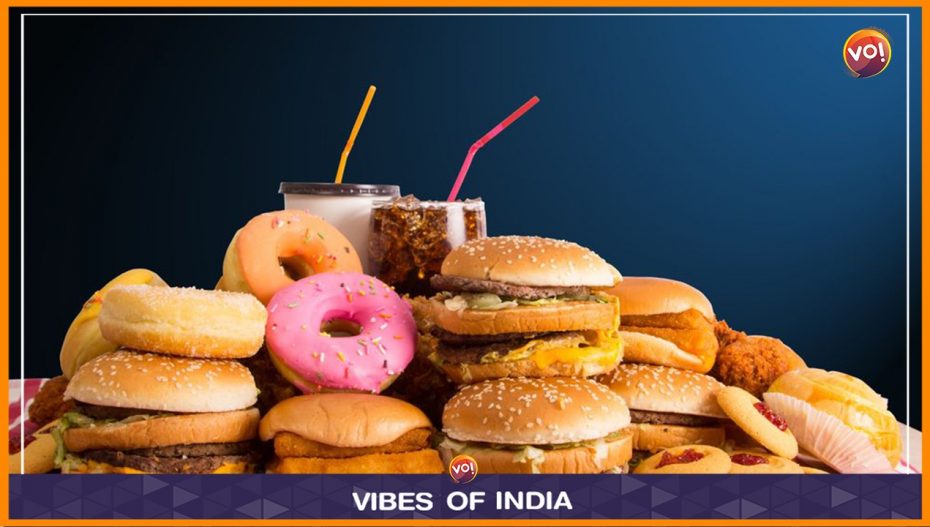Food addiction, that can have serious health consequences, can be overcome with consistent effort and support
“A former client of mine in her late 50s could not control overeating. She was severely diabetic but would give in to a craving for sweets. It was a clear case of food addiction. The foundation for this behaviour would have been laid during her childhood where both her parents were emotionally absent and therefore, the only source of warmth and comfort for her was food. She is still trying to battle food addiction so that her health does not deteriorate further.”
- As narrated by Purnima Gupta, psychotherapist and founder of Anahata Mental Health Clinic in Ahmedabad
When you think of addiction, substances such as cigarettes, alcohol and drugs come to mind. But there is one substance abuse which is not recognised medically. That is abuse of, or addiction to, food. Food addiction is as harmful as other addictions. The reason: It could lead to obesity which is linked to a host of lifestyle diseases such as diabetes, heart disease, cancer and many more.
Not only is food necessary for nourishment and good health, it also gives pleasure. Eating foods rich in sugar, salt and fat trigger the release of the brain chemical dopamine that plays a role in feeling pleasure. The pleasure and reward signals sometimes override signals of fullness and satisfaction that you get when you eat food. This leads to continued eating in a compulsive manner which is what food addiction is all about. Some common ‘trigger foods’ are chips, chocolate, cookies, cake, white bread, pasta and ice cream.
Some of the signs of food addiction are frequent binge-eating incidents, succumbing to cravings, eating until you are beyond full, and hiding food.
Major causes
In her book ‘Overcoming Overeating’, Lisa Morrone defines food addiction as “being unable to break free from the habit of eating too much because you mentally, emotionally, or physically can’t seem to live without it”. According to her, 75% of overeating is triggered by emotional factors.
People may turn to food as a distraction when they are bored or for comfort when they are emotionally distressed. Trauma victims often use food as a coping mechanism.
Biological factors that cause food addiction include hormonal imbalances and being on certain medications that trigger hunger. Peer pressure to eat out and eat junk food, and working in the hotel industry, could be secondary social factors that lead to food addiction.
DEALING WITH THE PROBLEM
According to Gupta, “A person facing food addiction must first try to find out what he or she is craving for and missing in life. Second, the person must take care of the body and pay attention to bodily signals and sensations. For instance, knowing when you are really hungry. Third, it is necessary to stick to routine in terms of eating.”
Here are some suggestions to deal with food addiction:
Identify the causes: You need to do some introspection to find out why you are eating compulsively and address the underlying cause. For instance, if it is boredom that is driving you to eat, engage in an enjoyable hobby to make life more interesting. If it is emptiness, you need to find a meaningful activity to make you feel useful and productive. If loneliness is the culprit, reach out to people and widen your social circle. If is childhood trauma (sexual or physical abuse), you may require professional help to heal.
Practise mindful eating: Chew slowly and focus on the taste and texture of each morsel of food you eat.
Maintain a food journal: Keep a record of whatever you put in your mouth. This may be a tedious practice but is very helpful in curbing overeating.
Stay hydrated: Sometimes feeling thirsty is mistaken for feeling hungry. Drinking plenty of water will make you feel full and keep hunger at bay.
Avoid alcohol and caffeine: Both these substances cause you to make poor eating choices. Too much caffeine causes anxiety which could lead to binge eating. Drinking alcohol makes you hungry and also impairs judgement.
Minimise eating out: Cook meals at home. This will ensure you avoid unhealthy foods. To avoid ordering food, delete food delivery apps from your phone.
Be aware of the withdrawal symptoms: On your journey to curb overeating, you may experience anxiety, low mood, and irritability.
Adopt a healthy lifestyle: This will motivate you to eat healthy as well. Exercise regularly and ensure you get sufficient sleep. Learn to manage stress without reaching for food.
Finally, seek support. Take the support of a friend or family member while you are trying to overcome food addiction. If necessary, seek professional help. Joining a support group like ‘Overeaters Anonymous’ may also help.

Also Read: IRDAI Approves Newer Registrations To Increase Insurance Cover









